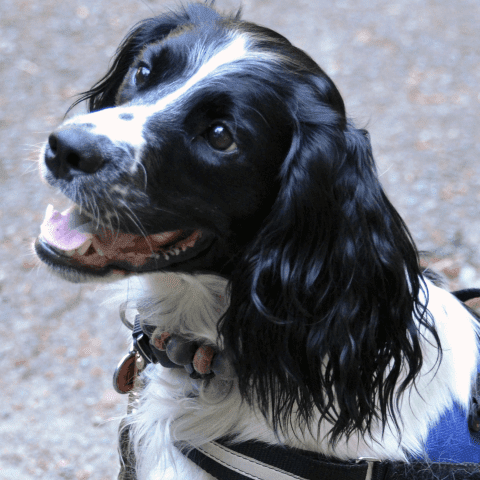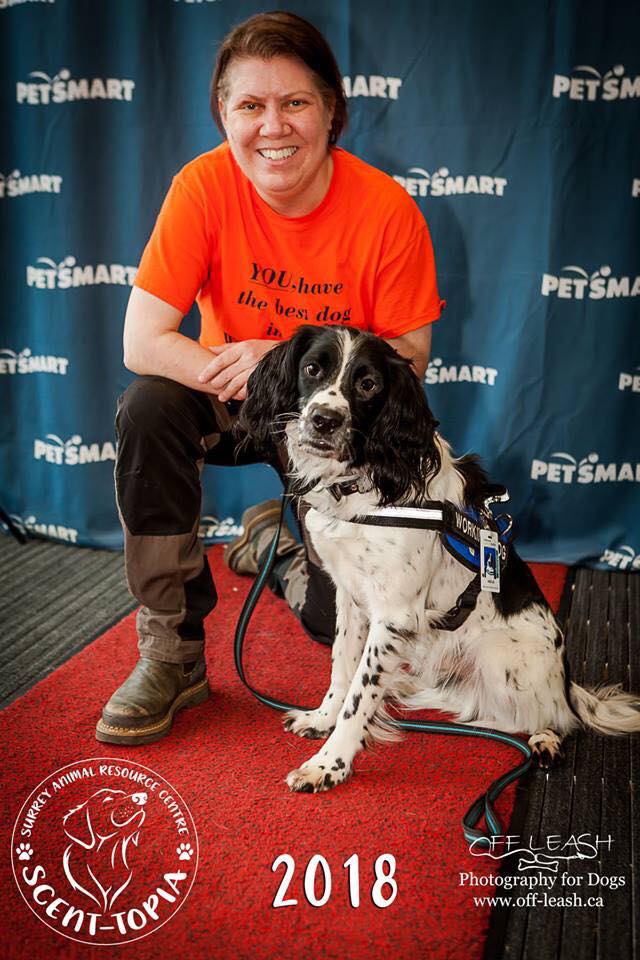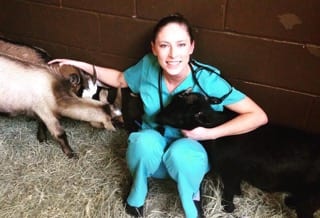Dogs can do amazing things from sniffing out bombs to hunting rabbits. But Angus, a 3-year-old English springer spaniel, is a detection dog like no other. In 2016, Vancouver Coastal Health (VCH) in Canada introduced this four-legged bacteria fighter to help detect Clostridium difficile (C. diff) in their hospitals.

According to the Centers for Disease Control and Prevention (CDC), C. diff is an immediate public health threat that requires urgent and aggressive action. In fact, C. diff causes 250,000 infections and kills 14,000 people each year in the United States. Deaths related to C. diff increased 400% between 2000 and 2007, in part because of a stronger bacterial strain that emerged. This strain is resistant to fluoroquinolone antibiotics, which are commonly used to treat other infections. These staggering numbers have also resulted in $1 billion in excess medical costs per year.
This superbug affects people whose immune systems have been weakened by other illnesses, those whose conditions require extended antibiotic therapy, and the elderly. C. diff causes inflammation of the colon, and it is the most common cause of infectious diarrhea in hospitals and long-term care facilities. These highly contagious bacteria are found in feces. However, people can become infected if they touch items or surfaces that are contaminated with feces and then touch their mouth or mucous membranes. Healthcare workers can also spread the bacteria to patients or contaminate surfaces through hand contact.

Teresa Zurberg, a certified trainer of bomb- and drug-detecting dogs, became infected with C. diff after being treated for a gash on her leg. What started out as a simple cut quickly turned into a whirlwind week in the hospital.
This woman's personal battle with this superbug inspired her to use her background as a dog trainer to search for a canine partner to sniff out the deadly bacteria. Zurberg found Angus at just 10 weeks old and shortly after she started training him to sniff out Clostridium difficile in the environment. Vancouver General Hospital, a hospital in the VCH network, was a natural choice for debuting Angus because Teresa's husband, Markus, is a Quality & Patient Safety Coordinator for the hospital. Vancouver General Hospital has won national and international awards for their innovative work to combat the spread of antibiotic-resistant organisms.

Angus uses his hyperacute scent-tracking abilities to find the most minute, invisible reservoirs of C. diff even after hospital rooms have been cleaned. Angus has found the superbug on about 100 occasions since he first started work at Vancouver General Hospital. After he signals his find, hospital disinfection staff use an ultraviolet light disinfection robot that can eradicate 99.9% of C. diff spores. In return, Angus is rewarded with a handful of kibbles or tug of war playtime.

The work Angus does is vital because there is currently no technology available that can detect the bacteria as efficiently as the pup. In fact, Angus and his handler, Teresa have been so successful at detecting the superbug at VCH that a second dog, Dodger, is now being trained. Once Dodger is fully trained, Angus may work at other hospitals. The dogs are part of a $150,000 hospital-funded program that is now seeking private donors to expand. The budget covers the costs of dog treats, trainer's fees, extra costs for the trio of ultraviolet light disinfection robots used to decontaminate surfaces, the new manual, and a website to help educate the public.
Want to see more? Follow Angus and his adventures on his very own Facebook page.
 Lydia Anderson is a Dual DVM-PhD graduate student at the University of Georgia. Since completing her PhD in Infectious Diseases, she has been working on her DVM at the College of Veterinary Medicine with an emphasis in public health and translational medicine. She plans to use her training to help address the questions and challenges facing One Health due to emerging and zoonotic infectious diseases. When she is not busy learning how to save all things furry and playing with test tubes, Lydia can be found either freestyle cooking for her friends and family or binge watching Netflix with her rescue pup, Luna. More from Lydia Anderson.
Lydia Anderson is a Dual DVM-PhD graduate student at the University of Georgia. Since completing her PhD in Infectious Diseases, she has been working on her DVM at the College of Veterinary Medicine with an emphasis in public health and translational medicine. She plans to use her training to help address the questions and challenges facing One Health due to emerging and zoonotic infectious diseases. When she is not busy learning how to save all things furry and playing with test tubes, Lydia can be found either freestyle cooking for her friends and family or binge watching Netflix with her rescue pup, Luna. More from Lydia Anderson.
About the Author
- athenssciencecafehttps://athensscienceobserver.com/author/athenssciencecafe/April 17, 2020
- athenssciencecafehttps://athensscienceobserver.com/author/athenssciencecafe/April 12, 2020
- athenssciencecafehttps://athensscienceobserver.com/author/athenssciencecafe/April 3, 2020
- athenssciencecafehttps://athensscienceobserver.com/author/athenssciencecafe/March 30, 2020







